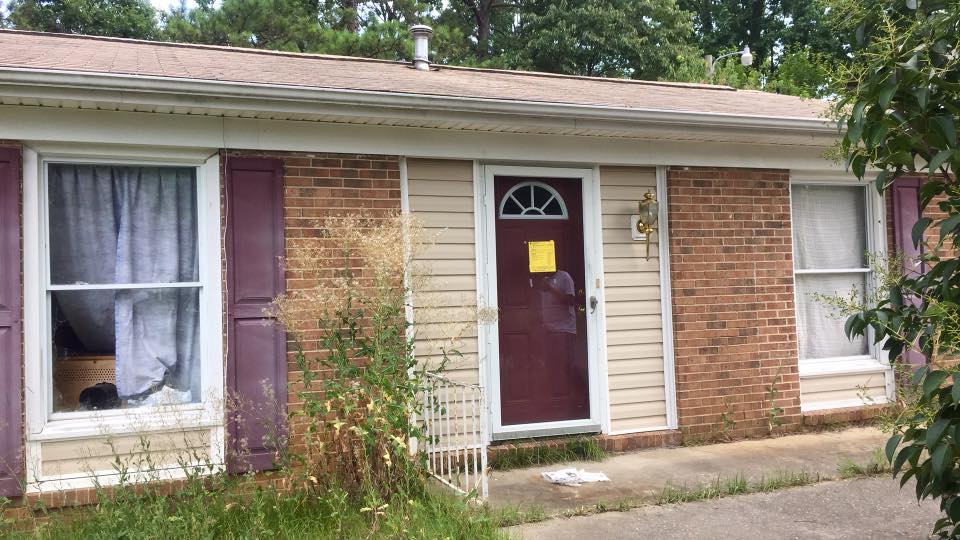By: Beth McKee-Huger (Community Housing Advocate)
On September 1, 2015, Greensboro City Council adopted changes to the city housing ordinance, Chapter 11 of the municipal codes, with the purpose of preserving housing by turning around unsafe housing conditions as quickly as possible. Please share the following information with tenants, rental property owners, and homeowners so that everyone will understand responsibilities and the city requirements.
Responsibilities of property owners:
- Maintain housing in safe condition to meet minimum safety standards.
- All plumbing, electrical, heating, cooling, and appliances must work.
- The building must be structurally sound, without leaking roof or deteriorating walls or floors.
- Porches and stairs must have railings if 30” inches or more from the ground.
- Housing must be pest-free when occupants move in; owner must control pests in multi-family housing.
- Windows & doors must open (in case of fire) and lock (for security).
- Provide utility services that the lease specifies are in the owner’s name.
- Do not rent housing that is condemned or under an Order to Repair.
Responsibilities of occupants:
- Prevent damage to the building; do not put anything in the toilet; keep the housing unit clean and dispose of garbage. Occupants must control pests in single family houses.
- Connect and maintain utility services that the lease specifies must be in the occupant’s name.
- Do not use unsafe heating equipment, such as unvented kerosene heaters or space heaters. Do not use generators or gas or charcoal grills inside a house or apartment.
- Notify the owner, in writing, of repair needs.
Code enforcement process by city inspectors to encourage prompt repairs:
- Request for inspection: call 373-2111 or make an online request by going to http://www.greensboro-nc.gov/index.aspx?page=1594 and click on Email. Inspectors may also initiate an inspection when they note 5 or more exterior violations or if the owner has a history of uncorrected code violations.
- Inspection: inspector contacts occupant and owner to enter the housing unit and write up any code violations found. If necessary, inspector can obtain an Administrative Warrant to gain access.
- Hearing: city notifies owners, occupants, and other parties of interest of hearing for inspector to explain violations and processes.
- Order to Repair or Demolish: the order is issued with specific deadline for correcting violations (30 days). Before the deadline, owner can submit a written request for time extension to complete repairs and receive a written response specifying the new deadline.
- Re-inspection after deadline: inspector re-inspects the housing unit; if all violations have been repaired the case is closed with no penalty. If violations remain, the housing unit is ordered vacated, a condemnation sign is posted, and a $200 civil penalty is issued plus $10 per day of noncompliance.
- Next re-inspection: if violations are corrected, the case is closed and daily fines stop. If there are still violations, another re-inspection fee is charged and the case is referred to the Minimum Housing Commission with recommendation for an Order to Repair (if repairs are estimated to be less than 50% of tax value) or an Order to Demolish (if repairs are more than 50% of value). Owners who rent a condemned housing unit can face additional civil penalties.
- Minimum Housing Commission hearing: the owner has the opportunity to present a plan for repairs. The Commissioners then vote to extend the time or to order repairs or demolition in 90 days. If the owner does not repair or demolish in 90 days, the city will repair (if less than 50%) or demolish (if more than 50%) and place a lien on the property for these costs.
- Liens: if the owner does not pay the repair or demolition costs, the city can foreclose on the lien and sell the property to recover the costs.
